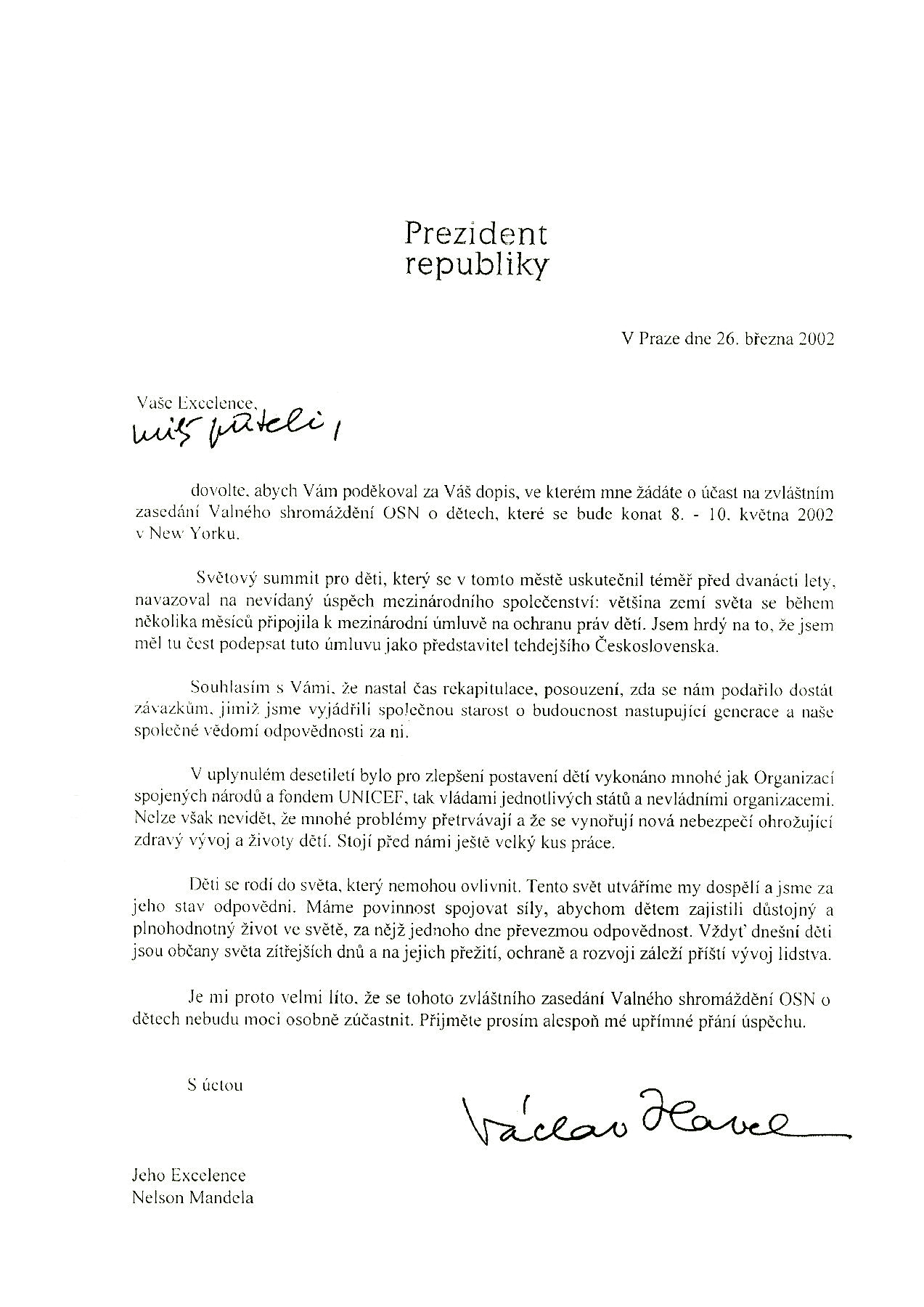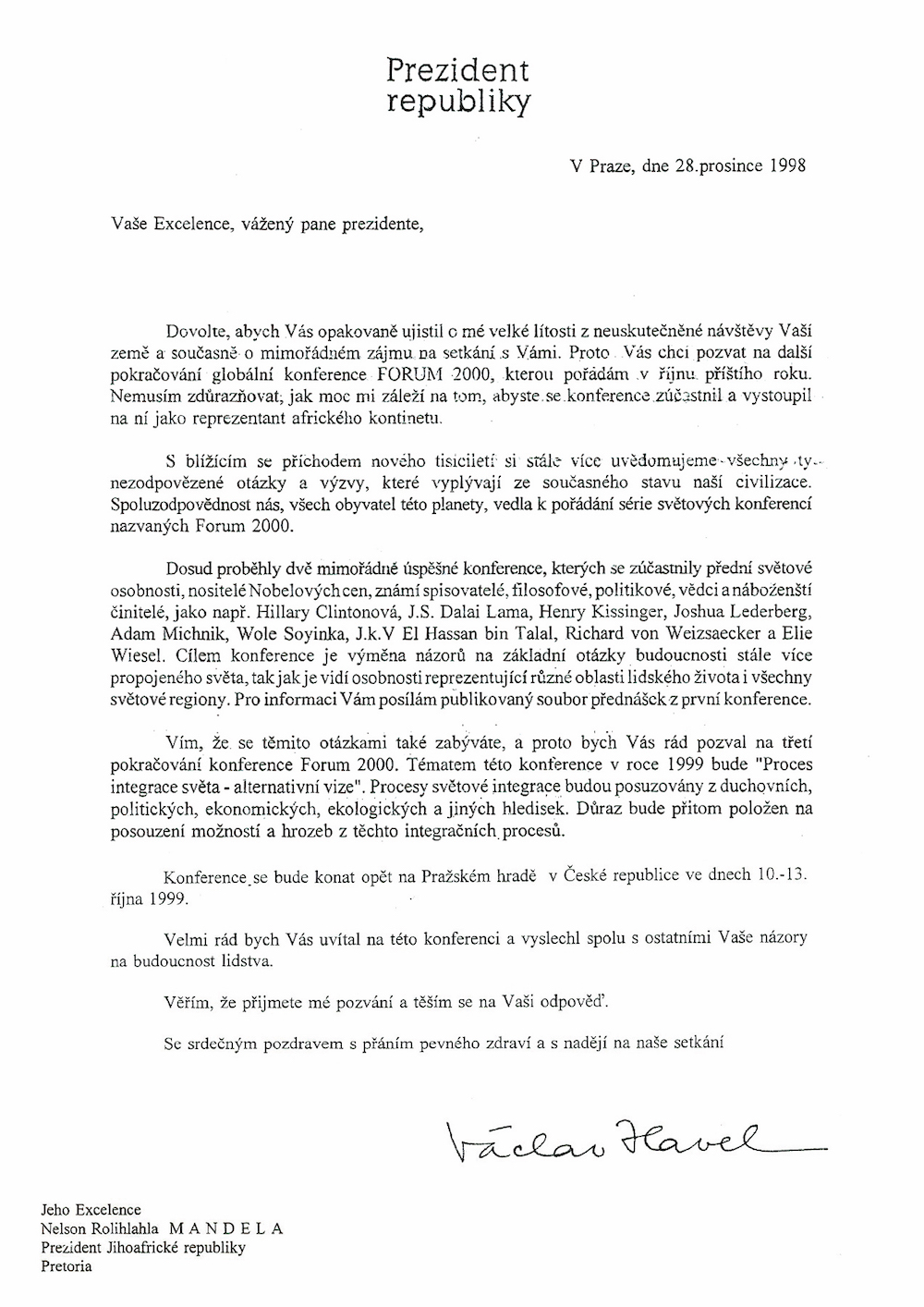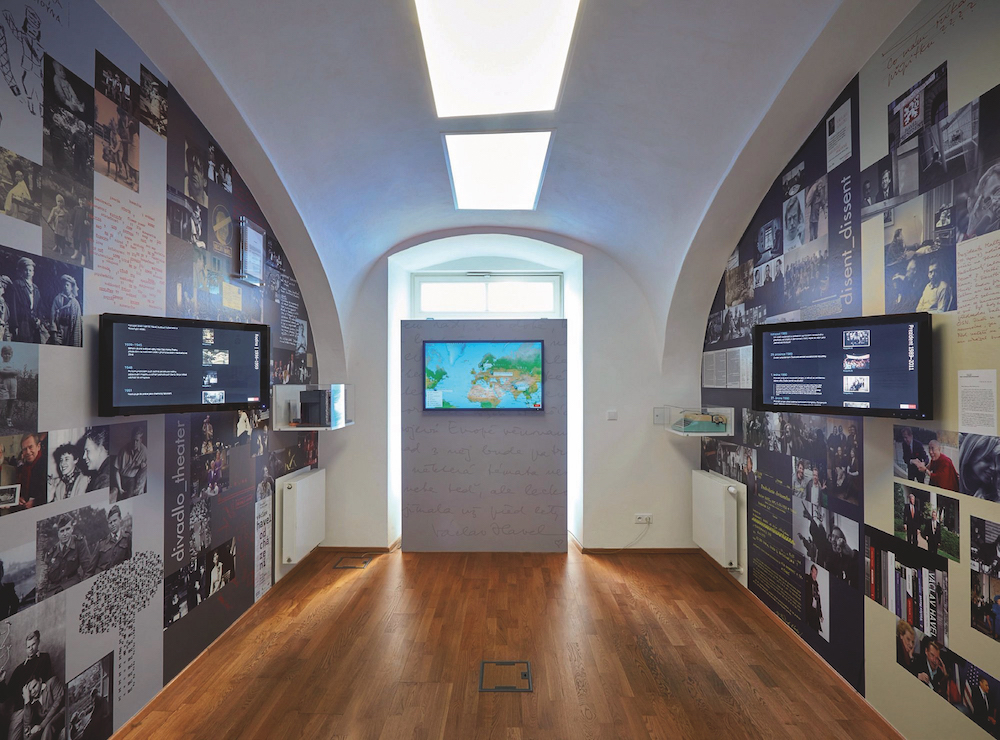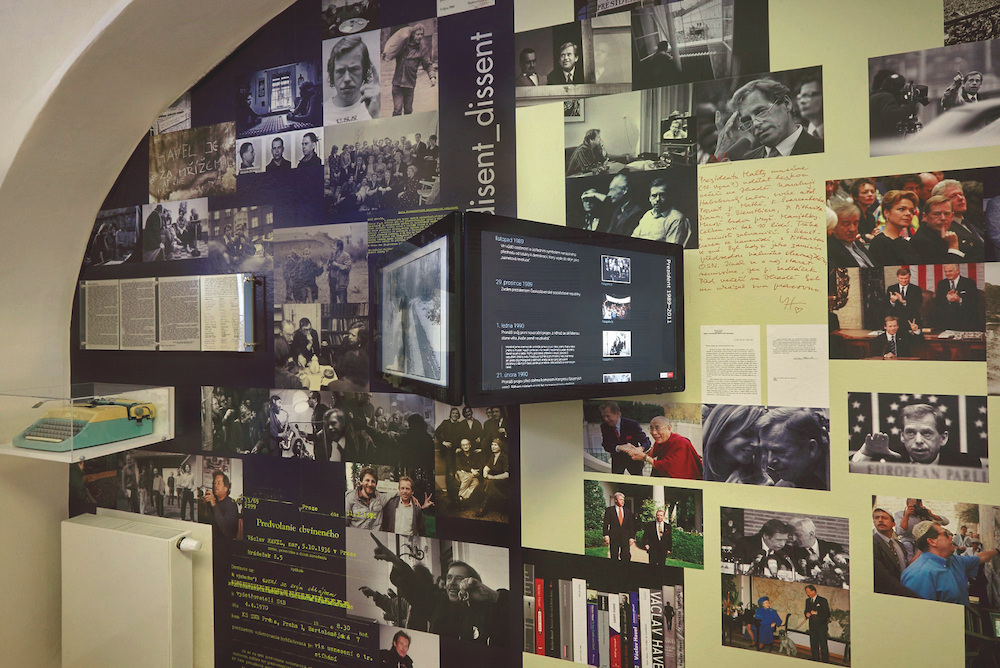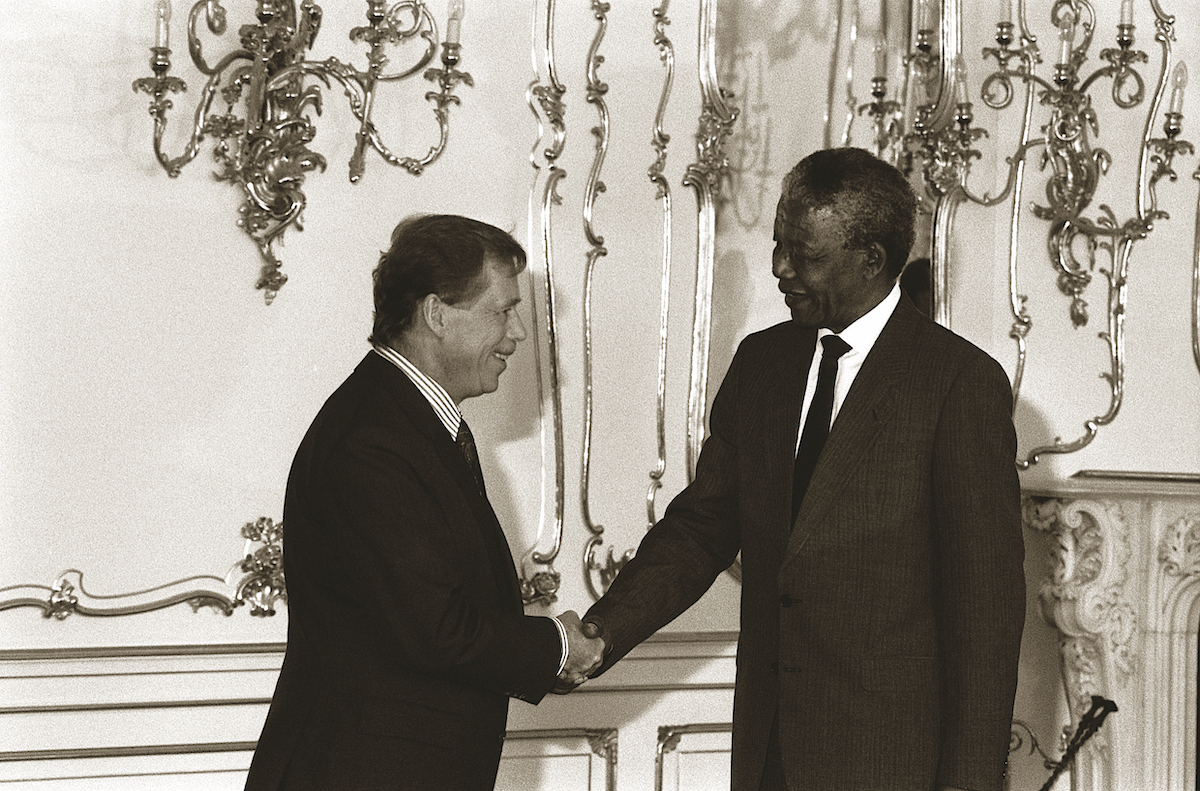
The message of the letters written by former Czech president, Václav Havel, to his South African Republic counterpart, Nelson Mandela
Text: Martina Hošková and M. Zisso; Photo: archive
Great politicians are never limited to their present day in their visions. In this regard, the letters written by former Czech president, Václav Havel, to his South African Republic counterpart, Nelson Mandela, can serve as a useful inspiration. Although they never met as presidents (only once briefly in Prague, in 1992, before Nelson Mandela’s presidency), Václav Havel felt that their life experiences had many common features. He felt responsible for the future of humanity, and addressed this topic regularly in his letters to Nelson Mandela. On the occasion of Africa Day, we would like to share some of his words with you, our readers.
December 1998
As the new millennium approaches, we are increasingly aware of all the unanswered questions and challenges that arise from the current state of civilisation. The shared responsibility of the inhabitants of this planet led to the organization of a series of world conferences called Forum 2000.
Two extremely successful conferences have been held so far, attended by leading world personalities, Nobel Prize winners, well-known writers, philosophers, politicians, scientists, and religious leaders.
The goal of the conference is the exchange of views on the fundamental questions of the future of an increasingly interconnected world, as seen by personalities representing various areas of human life and all world regions. I know that you are also dealing with these questions, and therefore I would like to invite you to the third continuation of the Forum 2000 conference. The theme of this conference in 1999 will be “The process of world integration – an alternative vision”. Emphasis will be placed on the assessment of opportunities and threats from these integration processes.
March 1999
Our life experiences have many common features, even though they took place in different political and geographical contexts. I am convinced that even now that both our countries have achieved freedom, the issue of human rights is equally important to us. Therefore, it is our responsibility to reflect on the restriction of human freedom anywhere in the world.
March 2002
The World Summit for Children, which took place in New York almost twelve years ago, followed an unprecedented success of the international community: most countries of the world joined the international convention for the protection of children’s rights within a few months. I am proud to have had the honour of signing this convention as a representative of former Czechoslovakia.
In the past decade, much has been done to improve the status of children. However, one cannot fail to see that many problems persist, and that new dangers are emerging that threaten the healthy development and lives of children. We still have a lot of work ahead of us. Children are born into a world beyond their control. This world is shaped by us adults and we are responsible for its condition. After all, today’s children are the citizens of tomorrow’s world, and the future development of humanity depends on their survival, protection and development.
Parts of selected Václav Havel’s letters were used and translated with the permission of the Václav Havel Library in Prague.
The Václav Havel Library collects, researches, disseminates, promotes and advocates the spiritual, literary and political legacy of a great figure of modern Czech history – the author, playwright, thinker, human rights defender and Czechoslovak and Czech president. It also focuses on people, events and phenomena related to the legacy of Václav Havel and strives to place them in the context of the times and of the present.
From August 2014, the Václav Havel Library is located at the address Ostrovní 13, Prague 1. The building’s ground-floor spaces is dedicated to an exhibition „Václav Havel or Havel in a nutshell“ and used for VHL club events – all kinds of seminars, readings, exhibitions, lectures, concerts and theatre performances. The Library’s offices, archive, constantly expanding library, and reading room are located on the first floor.
A big Thank you to the Václav Havel Library in Prague for giving us permission to use these very important materials.


